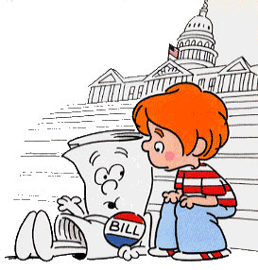
Convicts. Minors. People like me.
What do these individuals have in common? They are citizens of the United States who do not get full voting rights.
It is a fallacy that everyone in America has an equal vote. Growing up in DC, I was painfully aware of this fact with every election year. I do not get a real vote or real representation as a registered voter in the District of Columbia. I follow politics, relishing in electoral races with the zeal of a sports fan—too many of whom now appear to take more interest in the World Series than the competitions in which they can participate: the battles in our democracy. To me, the loud cheers and expressions of sorrow among baseball fans discussing the Yankees and the Phillies holds no interest. If anything, it really interrupts my ability to do things like my homework in an apartment of people who care. But on an election day like today, this rabid interest and the accompanying abysmal voter activity among those around me is appalling.
In DC, our license plates read “Taxation Without Representation”—plates with which Bill Clinton actually updated presidential vehicles, and which George Bush had removed. In school, I learned how lucky I was to have a vote as both women and Irish Catholics had been disenfranchised in this country. In my house, I was taught that voting was a moral responsibility with the power to voice my opinion of what was right and what would and should happen to my rights and my environment.
In each of my classes at NYU, the majority of students are from the tri-state area. These regions are the battlegrounds of critical elections for matters from gay rights to the authority of term limits to implications of presidential political capital. So, as a reporter and a child of DC, I informally polled my classes. My classmates are smart, engaged, and educated, I thought. It can’t be as bad as the poor showing I have seen walking into my building, which holds a polling station in the basement each election.
Not a single one told me they had voted or planned to do so in this election.
After the second class, I was confused. I was also indignant. But I wasn’t satisfied.
So, in a matter wholly questionable as a social scientist, I decided to consider a different sample. The Flatiron District at lunchtime seemed perfect. Individuals in the area often also work nearby, the polls will be easy to get to, and scoping out the polling booths will be easier as clearly people are getting there to vote. Yet logging on to the Community Board 5 website, the main page only told me about Yankees pep rally details from last week and bus route changes. I could not find information on voting. Once I did, the results were equally disparaging as the lack of publicity. In an hour on the street in front of the polling station, I counted a total of fifteen voters entering the building.
In DC, we do not have notable sports franchises—we have elections. Growing up in a politically active family, I followed elections with an enthusiasm that has yet to fully wear off. Eagerly poring over news and early polling data—back in the day when such figures were allowed—and relishing in the competition while anxiously rooting for my candidate, election days retain a tangible magic for me, a palpable, crackling air of power and possibility.
Sometimes, I am jaded. Sometimes, I am completely unphased by the political games and figured around which I grew up. But I am still susceptible to the excitement and anticipation of elections.
To me, that first Tuesday in November is my thrill in the democratic system.
Not to vote, I was taught, is morally reprehensible. I carry that belief with me still—and on this first Tuesday in November, it seems one of the hardest things about currently living in New York.




No comments:
Post a Comment